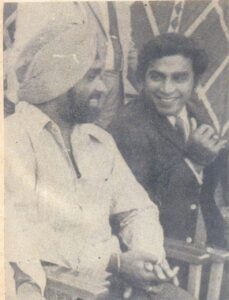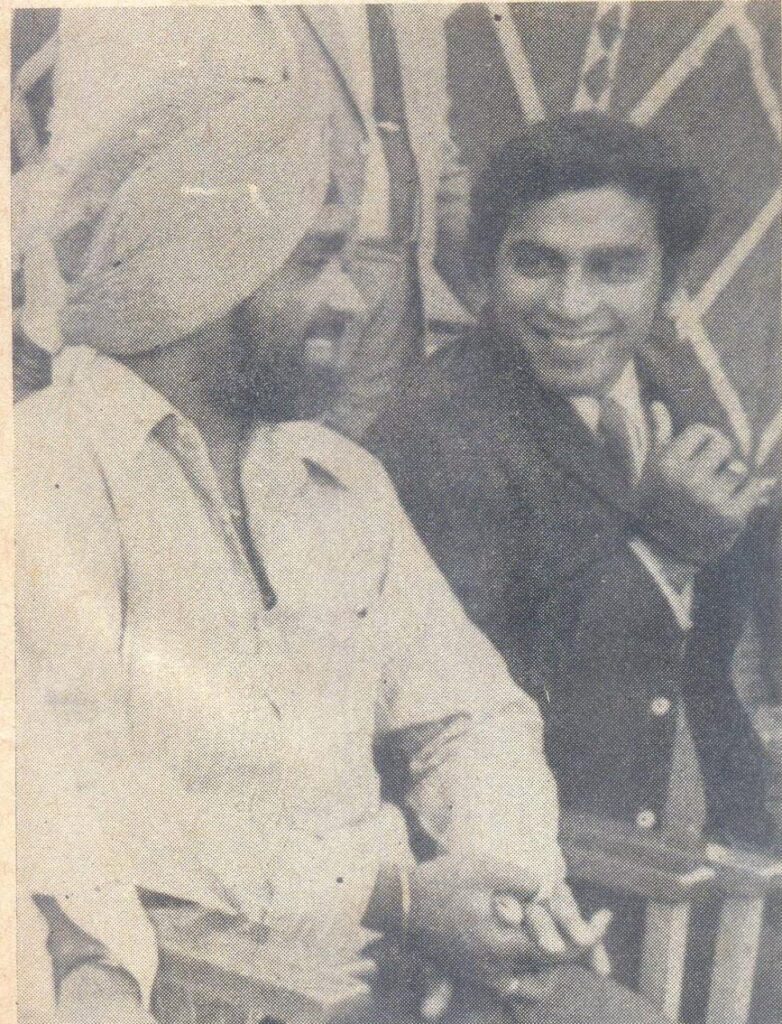
What lamps ceased to burn, and what hearts ceased to beat? The news of lion-hearted Sardar Bishan Singh Bedi passing away on Monday cast a pall of gloom over the cricket fraternity.
Any adjective used to describe Bedi will be incomplete. Paaji, a term used with utmost respect for anyone who commands it, fitted Bish, as the old-timers knew him. His passing away at 77 hits you hard, more so when Indian cricket is shining at the ICC World Cup.
Bedi was old school, yet, until two years ago, he was frank and forthright, even on Twitter. It was only after his last medical episode, in March 2021, that his family were scared to let him mingle with one and all. The brain-clot procedure he underwent at that time was a tough one. He survived it.
I would be lying if I said I spoke to Bish paaji recently. For a man whose laughter rang loud, he was the extrovert Punjabi by nature. His sense of humour was amazing, just like his bowling. I was fortunate to watch him bowl as a school kid when he played for India alongside three other famous spinners, BS Chandrasekhar, EAS Prasanna and S Venkataraghavan.
My first meeting with Bedi the superstar dates back to the 1970s, when he would come to the INA market in South Delhi with his first wife, an Aussie. Those were the days when media existed, not social media. The left-arm magician would be recognised in an instant. Sadly, there were no selfie cameras in those days. Images captured can only be narrated in words, which are in plenty.
Bedi was the true Sardar who loved the good things in life. During his heydays, he loved his drink, rum. But then, he mellowed with age. His father-like stature and faith in the Khalsa ensured that he became very devout. That was evident from the way he spoke. “Rab Mehar Kare,” he would say, which meant God have mercy.
I also had the good fortune to jot down a few columns from Bedi for The Indian Express, over the phone in the late 1980s. His thought process was crystal clear. Taking down 700-plus words on the phone and writing it up on a typewriter was hard. But then, you had to do it for Paaji, as he did not want to miss a deadline. Otherwise, he would fax his columns, handwritten, in those days.
What do you say about a man whose left-arm spin – slow, tantalising, looping through the air and beating batsmen – was so mesmerising? Bedi’s action was simple, the patka (head covering) tied smartly and the kada (iron bangle) on his hand a permanent fixture. There were instances when batsmen objected to the sunshine reflecting off his kada. Bedi never paid heed. He just adjusted his white shirt sleeves and bowled again.
Cracking jokes came so naturally to him. He had so many anecdotes to share with almost anyone. Even for those who were not dedicated cricket writers, Bedi was available for a quick quote. I once asked him about spin, supple fingers and the tricks of bowling.
He used the word “son”, and meant it. Bedi then narrated stories of how allowances for cricketers travelling overseas were so poor in those days that they would wash their own socks. His explanation was brilliant. Rubbing soap on socks, rinsing and then washing was an exercise to keep the wrist and fingers supple. You don’t expect today’s spinners, with express laundry in seven-star hotels, to do that.
Bedi had his run-ins with the cricket establishment in Delhi. His words were often harsh, but they came from the heart. For a man who tried changing things in the Delhi cricket establishment a few times, Bedi knew he was fighting a losing battle. Things that were wrong with the DDCA five decades ago still exist. “Old bandicoots” was how KR Wadhwaney and R Sriman, two scribes no longer with us, described the DDCA office-bearers. Bedi was best friends with these two writers, and when he once said that the DDCA should be bombed, it was from a deep sense of hurt.
Fearless as a bowler, he had strong convictions as a man. I last met him in 2019, at an event in New Delhi that commemorated the 1983 World Cup win. Almost all the team members were there. Bedi had been part of the selection committee which picked that Indian squad which Kapil Dev led to a historic triumph. Ghulam Ahmed, Pankaj Roy, Chandu Borde and Chandu Sarwate were the other members of the committee. “We just did our job,” said Bedi Sahib, when I asked him about it. Such simplicity, such emotional memories.




